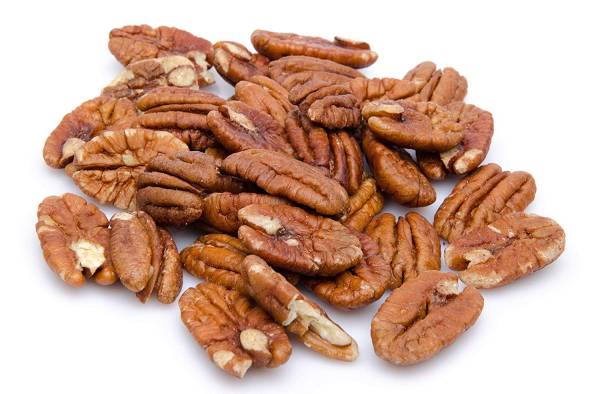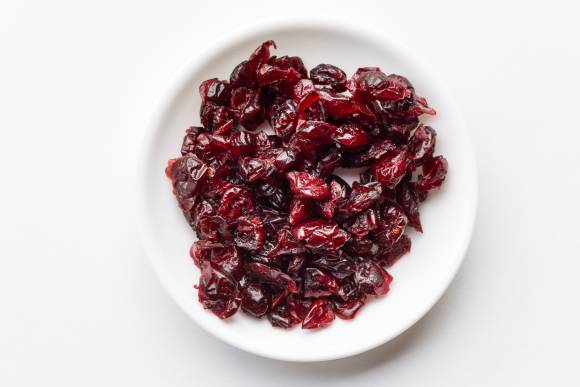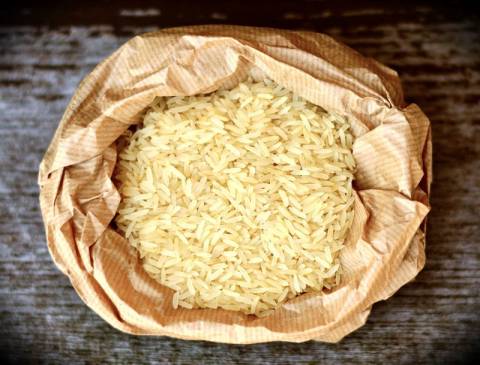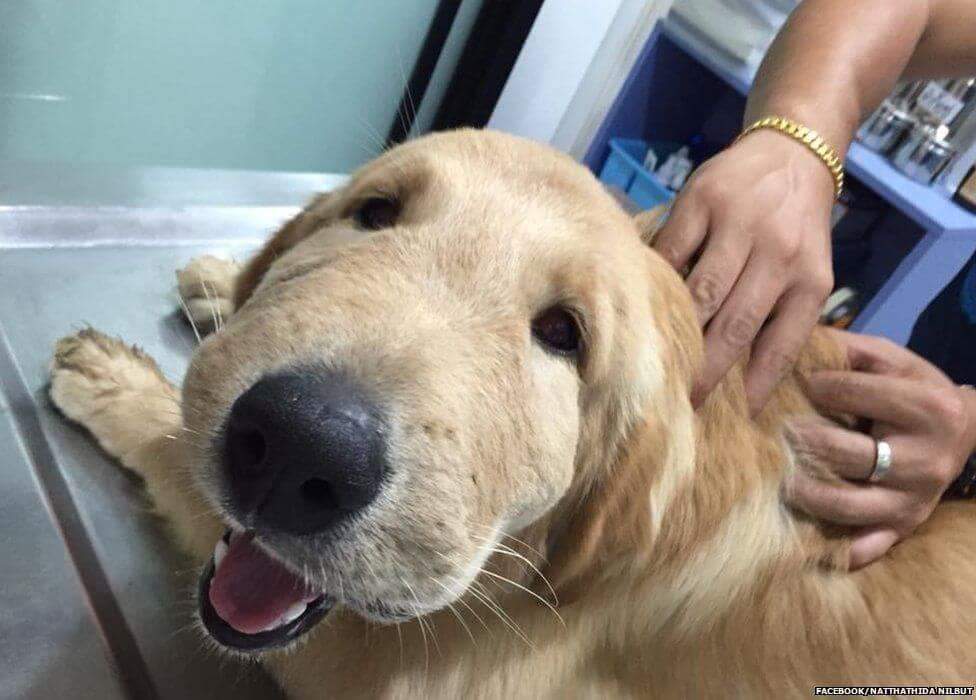Connect with a verified veterinarian in minutes. Licensed vets are available 24/7 to answer your questions. No need to worry about your furry family member.
Many people love pecans! You can find them in a wide variety of dishes and desserts. These nuts are extremely popular! While that’s the case, you may want to not give your dog foods that contain pecans.
First, what is a pecan? A pecan is a small nut with a hard shell and soft inside. They are actually the fruit of a hickory tree. The nuts are harvested from the tree when they have turned from green to brown, and then they are dried out on screens to remove the husks.
There are two types of pecans, white and black. The white ones are more common than the black ones because it is easier to pick them up off the ground when they have fallen from the tree. They are also smaller and easier to process.
Pecans are high in fat, fiber, and protein. They are also a good source of copper, manganese, magnesium, phosphorus, and vitamin E. They are rich in flavonoids, beta-sitosterol, and phytosterols.
Pecans are usually eaten as a snack, in the form of a pie or on a cookie. They are used in baking and candies, and they are often used in recipes that call for pecans.
It is not uncommon to find them on the menu of a restaurant or to find them in the produce section of a grocery store. You can also buy them fresh at the market or you can get them canned in a can.
Many people buy pecans and store them in their kitchen to use as a snack. However, it is important to remember that it is not safe to eat raw pecans. The nuts can also be roasted and ground into a powder for use in baking or for use in other recipes.
But, can’t dogs have pecans?
Pecans are Toxic for Dogs
No, dogs can’t have pecans because these yummy nuts are poisonous to dogs. While pecans contain some healthy nutrients such as omega-6 fatty acids and antioxidants, along with other vitamins and minerals, they contain a substance that’s toxic for dogs.
Why are Pecans Bad for Dogs?
Pecans contain a substance called juglone. If a dog eats pecans in large enough quantities, they can become very sick. In fact, they could either develop gastric upset or a blocked intestine.
Intestinal blockage can be life-threatening. The symptoms of pecan toxicity in dogs include vomiting, diarrhea, and lethargy. Also, if your dog ingests too much pecan you may have to perform surgery to remove the nuts from their stomach.
A dog with pecan toxicity may have a number of other symptoms, including abdominal pain, diarrhea, and excessive drooling. If your dog has these symptoms it’s best to take them to the vet immediately.
Pancreatitis is another potential complication of pecan toxicity. This can be fatal. Pancreatitis is an inflammation of the pancreas, which is responsible for making insulin. If a pooch eats enough pecans, they can develop pancreatitis.
Gastrointestinal upset is also potential complication of pecan toxicity. Dogs that eat too many pecans can develop vomiting, diarrhea, and/or abdominal pain.
What about pecan nuts and pecan pie?
Well, pecan pie is not necessarily a dog food, and it does contain pecans and other nuts. If you’re concerned about your dog eating pecans, you can make a pie without them. Just replace the pecans with pumpkin or another type of nut. You could also just leave out the pecans or don’t give your dog human foods altogether.

Review symptoms, medications & behavior to keep your pets healthy with a Vet Online in just minutes.
Ask a Vet Live NowSymptoms of Pecan Poisoning in Dogs
You may notice these symptoms if your dog has eaten pecans:
- Loss of appetite
- Vomiting
- Lethargy
- Urine with an orange-color
- Blood in the urine
- Blackened or bloody stools
- Seizures
- Other neurological symptoms
Symptoms of Mycotoxicosis in Dogs
If the pecans were moldy, then that’s also a problem. The reason is that moldy pecans contain high levels of aflatoxin and other tremorgenic mycotoxins. These can all be extremely dangerous for your dog, and possibly lead to death.
Symptoms of mycotoxicosis can include:
- Tremors
- Vomiting
- Fever
- Diarrhea
- Abdominal pain
- Jaundice
Treatment of Pecan Poisoning
If you believe your canine companion has eaten a bunch of pecans, then call the vet right away. They may ask you to bring the dog in for an exam and possible treatment. Treatment may include inducing vomiting with activated charcoal or even gastric lavage.
If your dog’s symptoms are severe, the vet may also treat your fur baby with medications to control symptoms and an IV to treat the liver and avoid liver failure.
In case your dog has eaten a few pecans, they may even be able to stop the symptoms with a little extra effort. However, if the pecan poisoning is severe, then they may need some IV treatment and possibly an induced vomiting.
A vet will determine whether or not your dog has consumed a sufficient amount of pecans to warrant treatment. This depends on the amount that was eaten, and how long ago it was eaten.
Keep Pecans Away from Your Dog
It’s much easier to keep pecans away from your dog, then dealing with pecan poisoning. For this reason, be sure to keep all pecans out your dog’s reach. And don’t give him food that contains pecans.
And if you have a pecan tree, then be sure to pick up all nuts to keep your dog from eating them. Remember, not only do the nuts contain toxins, but if left to mold, they will contain even more toxic substances that can cause death in dogs.
Never let your dog eat pecans. This is the best way to keep him from becoming very ill or even dying. Rather than giving him pecans (or other nuts), find a healthy snack he can enjoy with you! You’ll be be happier in the long run!
Other Food Poisoning Causes: Can Dogs Eat Nuts?
Artificial sweetener, artificial coloring, coffee, caffeine, onion, garlic, grapefruit, nuts and citrus fruits can also be toxic to dogs. A dog eating one of these foods could develop the same symptoms as a dog that ate pecans. There are other common foods that can be toxic to dogs. Let’s take a look at some of them.
Black Walnuts
Black walnuts are usually safe for dogs to eat. However, in some parts of the country, they may contain a toxin called mycobacteria that can be very dangerous to dogs.
Macadamia Nuts
Macadamia nuts are toxic to dogs. The reason is that they contain a toxin called cardol. This can be very dangerous to dogs, causing kidney failure and even death.
Peanut Butter
Peanut butter is usually safe for dogs to eat, but it’s not recommended for small dogs because they may choke on it. Also, some brands of peanut butter contain xylitol, which is toxic to dogs.
Pistachios
Pistachios are a great snack for dogs, but they should be kept away from dogs with diabetes. Pistachios have high fat content, which can cause digestive upset in dogs with diabetes. A large amount of pistachios can cause obesity and diarrhea in dogs.
Cashews
Cashews are not toxic to dogs, but they are high in fat. If a dog eats a large amount of cashews, they can affect the dog’s digestive system. They could develop gastrointestinal upset, vomiting, diarrhea, and/or even a swollen stomach.
Hickory Nuts
The nuts contain a toxin called juglone, which can also give dogs an upset stomach. If a dog eats enough of these nuts, they could develop severe gastrointestinal upset and vomiting.
Final Thoughts
In order to prevent a dog from getting sick, dog owners should make sure that their dog doesn’t eat pecans in large quantities. A dog’s diet should contain only natural foods, not man-made products. People foods are generally not good for dogs.
The dog’s health should be monitored regularly. If a dog starts showing signs of illness, the owner should take the dog to the vet as soon as possible. Health issues like diarrhea, vomiting, and nausea can be life-threatening. A Doctor of Veterinary Medicine (DVM) can help with these issues.
In addition, choking hazard is a serious problem. If a dog eats something that they can’t swallow, they may end up choking. While most dogs will only choke on dry food, it’s possible for a dog to choke on a pecan. Legumes, such as pecans, are known to cause choking in dogs.
Connect with a verified veterinarian in minutes. Licensed vets are available 24/7 to answer your questions. No need to worry about your furry family member.

Kyoko
Kyoko is from a family of 3 and moved to New York with her parents and siblings when she was 13. Kyoko is fond of spending a great amount of time with pets, specifically her beagle Luna and cat Missy. Her boyfriend often complains that she spends too much time giving attention to their animals. Kyoko has written dozens of articles concerning pets and is aiming at owning a pet shop one day!
Review symptoms, medications & behavior to keep your pets healthy with a Vet Online in just minutes.
Ask a Vet Live Now





